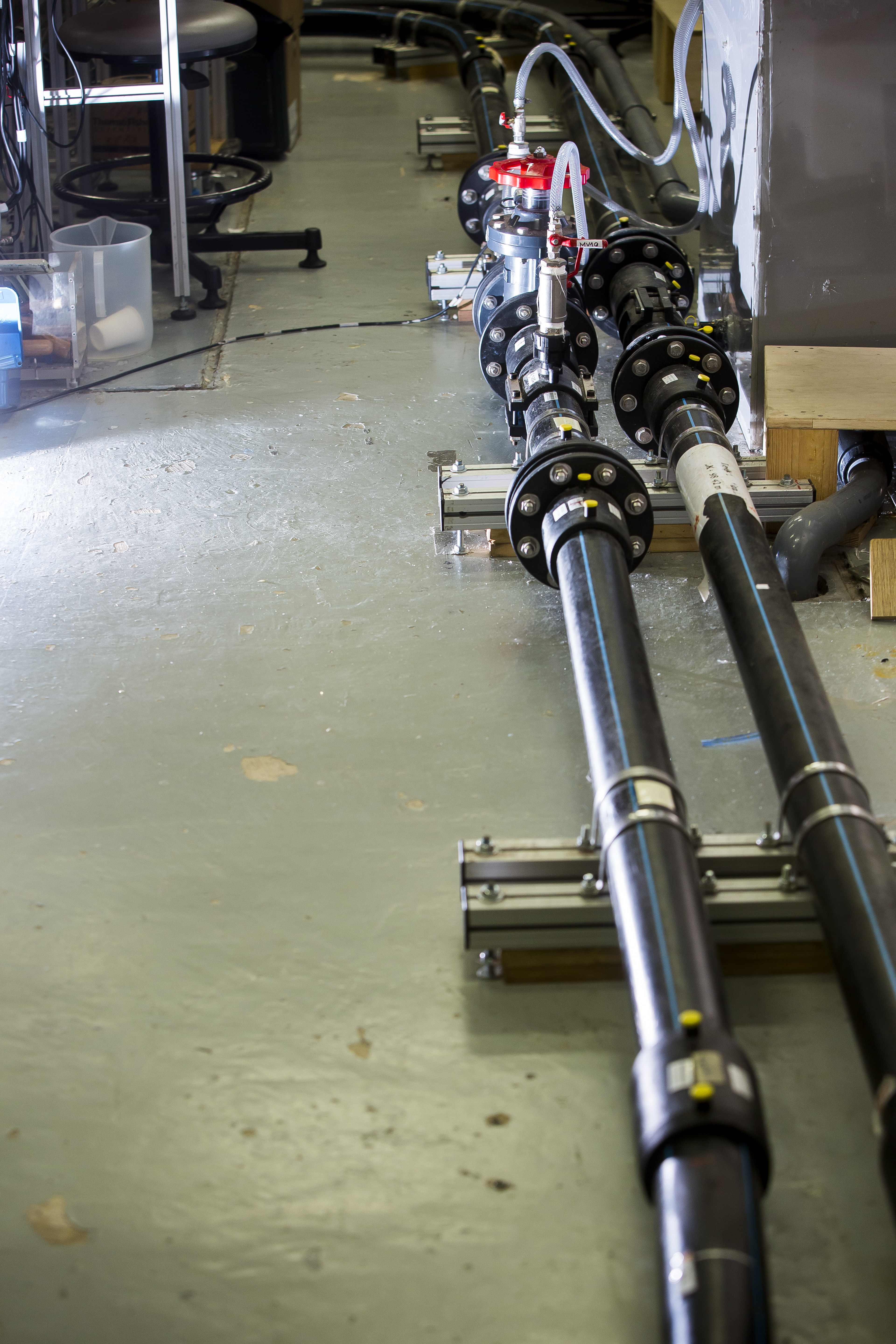Hydraulics
The areas of research of the group cover environmental hydraulics and fluid mechanics, urban hydrology and hydraulics, probabilistic analysis of hydrosystem engineering, and wind engineering. The hydraulics laboratories and internationally known CLP Wind-Wave Tunnel Facility are equipped to conduct research in the fields of classical hydraulics, environmental fluid mechanics, and wind engineering. Members of the group are active in research and have been successful in securing research grants from various government departments and private entities. Current research topics in each area are listed below:
Environmental Hydraulics/ Fluid Mechanics:
Understanding and modeling of the key factors affecting the large scale transport and mixing in hydraulic, environmental, and geophysical applications. Research topics include:
(a) study of large scale flow behavior in the wake for modeling of flow, pollutant and sediment transport in water and air;
(b) analysis of wind flow over complex terrain for wind power generation and micro-climate analysis; and
(c) dealing with wind-structure interactions that affect ground level wind behaviors and air quality in urban environments.
Urban Hydrology and Hydraulics:
Study of hydrologic cycles in urban environment, water supply and sewerage systems under transient (or waterhammer) conditions for:
(a) establishing plausible hydrologic design criteria for urban water infrastructures;
(b) design and analysis of water supply and pressurized sewerage pipeline systems;
(c) selection of water hammer protection devices;
(d) leakage detection and transient-induced water quality problems in water supply lines; and
(e) study of sewer surcharging.
Probabilistic Analysis of Hydrosystems:
Addressing issues relating to water resources management and hydrosystems infrastructural designs affected by inherent randomness of geophysical processes and other uncertainties. Research topics include:
(a) development of uncertainty and reliability analysis techniques for risk-based design of hydrosystems infrastructures (e.g., urban stormwater drainage and flood control systems);
(b) stochastic analysis and modeling of temporal and spatial rainstorm characteristics in Hong Kong.
Wind Engineering:
Understanding of fundamental and applied issues of wind. In particular, topics of research include:
(a) wind-induced external and internal pressures in high-rise buildings;
(b) innovative design technologies for tall buildings in typhoon prone urban environment; and
(c) wind-induced tall building motion and occupant’s comfort.
Faculty
Prof. Mohamed S. GHIDAOUI: Fields of hydraulics, water resources and environmental fluid mechanics. In particular, modelling of surface, sub-surface and closed conduit flows: unsteady friction in conduits; turbulence modelling of fast transients; flow stability; numerical modelling of surface and closed conduit flows; water quality modelling; parameter estimation; inverse analysis and water quality; modelling of island wake flows.
Prof. Joseph H.W. LEE: Environmental hydraulics/fluid mechanics; water quality modelling; flood control; environmental management; science and technology policy.
Prof. Mengqian LU: Atmospheric Rivers - trajectory identification, spatiotemporal statistics, diagnosis, hydrometeorological impacts, hydrometeorological extremes (e.g. heavy rainfall, floods and etc.) - atmospheric diagnosis; statistical and physical based modeling; extended ranged and Seasonal to Subseasonal (S2S) prediction; severe weather (e.g. typhoon/hurricane, tornado and etc.); East Asia summer monsoon - climate change and variability; coupled ocean-atmospheric dynamics; statistical learning, data mining; water resources system analysis and multi-timescale climate-informed stochastic hybrid simulation-optimization (McISH) modeling.
Prof. Jiachuan YANG: Green Infrastructure; Hydrological Modeling; Land-Atmosphere Interaction; Surface Energy Balance; Urban Sustainability and Water resources.


